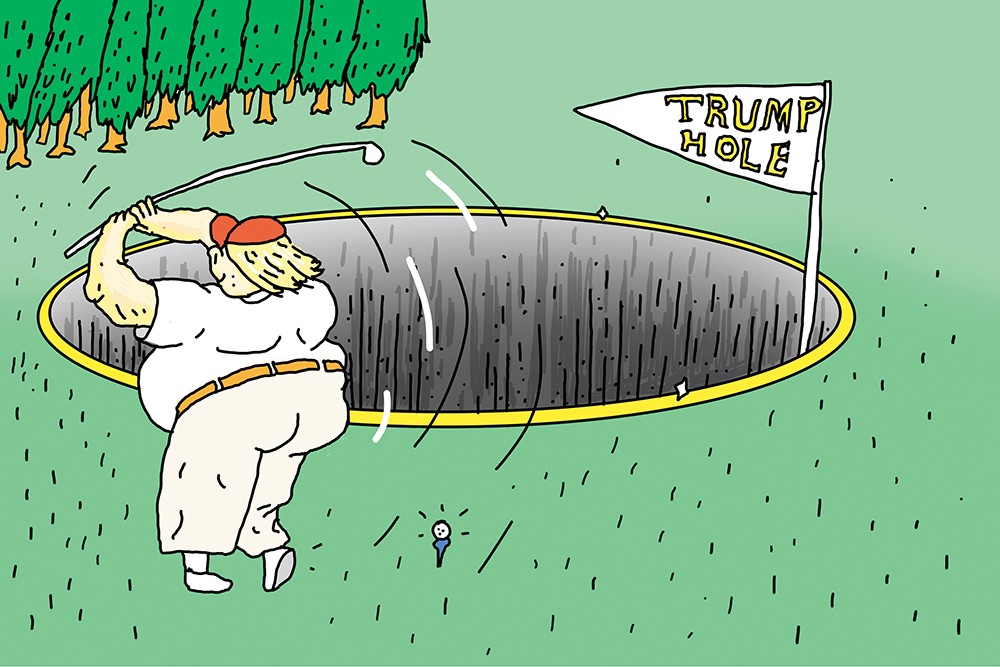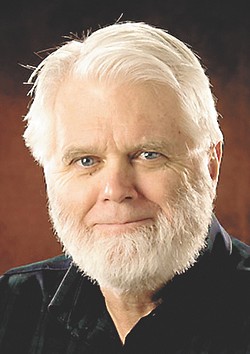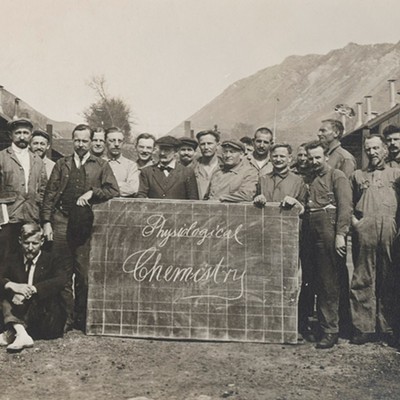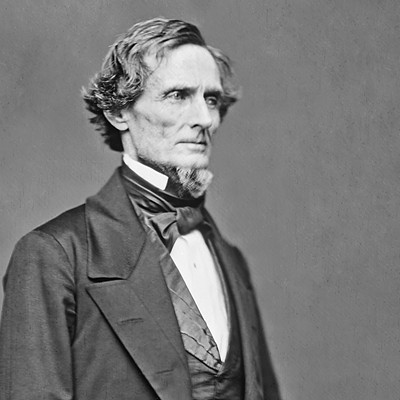Commander in Cheat by sportswriter Rick Reilly is, yes, about Donald Trump, whose cheating at golf is legendary. Reilly's new book is, however, about so much more. Why? When it comes to formal competition, golf is really about honor, which Trump disdains as something only losers worry about.
Reilly begins by taking the reader back to Trump's early life, to his father, who taught him that winning was everything — makes no difference how you win, just that you win. And to win you may have to cheat.
When we think of cheating at golf, we usually think about something like improving your lie. You seldom think of cheating as moving someone else's ball so as to make the next shot more difficult, or impossible. Trump does this all the time, Reilly found in his research. Trump drives the fastest cart he can find, races to his ball ahead of his competitors, then he is known to toss his competitors ball into deep rough or kick it into a sand trap. And, as Reilly reports, Trumps sees nothing wrong with any of this.
Trump tells people that he is a two handicap. Those who play with him, or who have caddied for him, report that he is more like a 10. Not bad, but a long way from shooting scores in the low 70s, which is what two handicaps shoot.
Reilly also notes that in televised tournaments Trump has played, he has never done well. Why? Smile, Donald, you're on candid camera.
Then there's his ego. He always wanted a big-time tournament to come to one of his courses. No takers. What does he do? He buys Doral and its famous "Blue Monster" course, which since 1962 had been a must-stop on the tour.
First thing Trump did was change the name to the "Trump National Doral Miami." Then he called the tournament a "major" (which it wasn't). Then his ego-driven troubles really began to kick in. The sponsor of Doral was Cadillac, which meant Trump would now have to share top billing — not good for the ego.
Then Trump began to make a pest of himself during tournament week. He would show up on the driving range and yammer as the players were preparing. He would fly in his chopper over the course — during play. Moreover, Trump had overseen a redesign that no one liked. Rory McIlroy commented, "Maybe it's time for me to reconsider my schedule."
Finally, longtime sponsor Cadillac had enough and, in a move that drips with irony, not only did the company terminate is association with Doral, the tournament moved to — get this — Mexico. Later McIlroy quipped that players would just "jump over the wall."
The thing is, so far Trump is getting away with all the above, except much worse, on a much larger stage with much more at stake. Roll back the videotape to June 2017. In an article written for the Foreign Affairs Quarterly, Matthew Kroenig, then an associate professor at Georgetown, wrote in support of Trump's early foreign policy and the team he had selected. He praised the early reports on how tough Trump would be on Vladimir Putin. (So much for that prediction.) He also praised Trump for his cabinet choices, with Rex Tillerson as secretary of state. Well, Tillerson quit, but not before he called Trump a "f—-ing moron." And Nikki Haley, she left, too. As did H.R. McMaster, another choice who got high praise. At the top of list of Kroenig's list of good choices who decided to dump Trump the way Cadillac did, we have Defense Secretary James Mattis. His cabinet is emptying out. Nobody, it turns out, wants to play with Trump for long.
Might it be that Trump's cheating in golf should be viewed as a metaphor for how he's running the country? ♦
Robert Herold is a retired professor of public administration and political science at both Eastern Washington University and Gonzaga University.
























